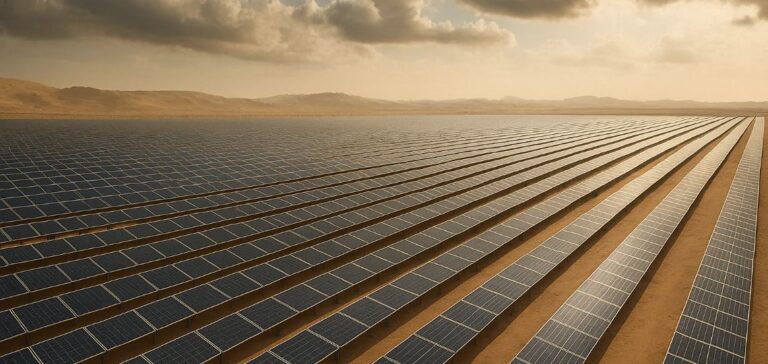The Algerian government has entered discussions with LONGi, the Chinese solar panel manufacturer, to establish an industrial partnership aimed at setting up a local production line for photovoltaic modules. The proposed agreement could allow Algeria to strengthen its solar energy production capacity while leveraging LONGi’s advanced technologies to develop its renewable energy sector.
Objectives of the partnership with LONGi
This solar panel manufacturing project in Algeria is also seen as an opportunity for the country to become a regional hub for the production of these equipment, with a distribution strategy that could extend to other African markets. The discussions cover technical, logistical, and regulatory aspects, including tax incentives and benefits offered to foreign investors in the energy sector.
Implications for the Algerian energy industry
Algeria’s energy sector, traditionally focused on fossil fuels, is seeking to diversify its production sources to meet the growing demand for energy, while fulfilling the country’s international commitments regarding energy transition. The establishment of this factory could also bring local economic benefits, including job creation and the initiation of technology transfer processes.
Algeria’s long-term solar ambitions
Another key aspect of this partnership lies in Algeria’s solar energy production ambitions. The country plans to deploy renewable energy production infrastructure with a capacity of 15,000 MW by 2035, with a particular focus on solar energy. This partnership with LONGi could play a key role in achieving these goals while reducing the dependency on imported solar technologies.






















